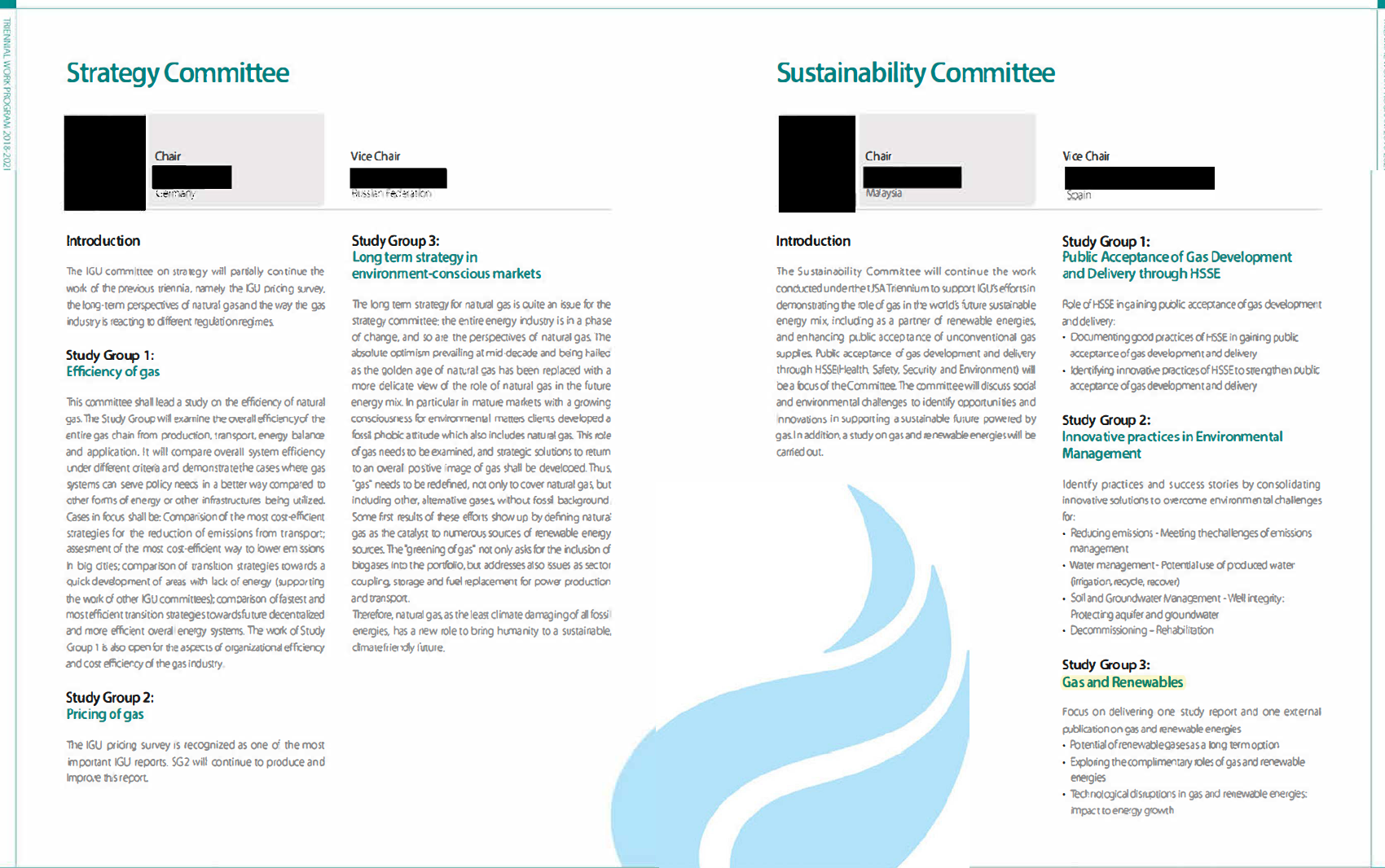Climate Must-Reads: New Studies Follow the Money, Plus Industry's Media Meddling Reaches New Levels, Climate Burnout & More

A couple of new studies out last week provide tremendous insight into how the fossil fuel industries works to block climate policy and where it's particularly focused at the moment. Unfortunately neither got any media coverage at all. If you haven't noticed, there's been a massive bloodletting in the media the past couple of months with layoffs at every national outlet and hiring freezes at the few outlets not announcing major layoffs. I can tell you from my own experience that this is resulting in fewer climate stories being assigned, and longer wait times for the stories that are assigned to be published. Half the editors are handling an ever-increasing number of climate stories and there's just less and less space for them every week.
At any rate, let's dig into this new research for a minute! First up, an often-used source around these parts ,Dr. Robert Brulle at Brown University, teamed up with Christian Downie at the Australian National University on a new peer-reviewed study in the journal Climactic Change that looks particularly at the role of trade associations in blocking climate policy. As we've covered multiple times, it's quite common for corporations in various industries to commit to climate action publicly while funding and coordinating behind the scenes within trade groups like the American Petroleum Institute, the National Association of Manufacturers, or the American Fuel and Petrochemical Manufacturers to block climate policy. This new study finds that U.S.-based trade associations spent $3.4 billion from 2008-2018 on advertising, lobbying, and political contributions to ensure that climate action would be stalled. While there's been a lot of attention paid to lobbying activities of these associations, the research finds that they are spending even more on advertising and promotion and grant giving by a factor of 3 to 1. Industry spokespeople and pro-fossil fuel pundits often claim that there's just as much, if not more, spending in the push for climate policy as against it, but so far the data does not back this claim up. In reviewing IRS filings from 2008 to 2018, Downie and Brulle found that spending by sectors generally opposed to climate action compared to those in support was $2 billion to $74.5 million.
In the same week, Influence Map put out a fascinating report on the International Gas Union, which describes itself as a "spokesperson for the gas industry worldwide." It has more than 150 members including all the household names—Shell, ExxonMobil, Sempra, and Total—representing about 90 percent of the global gas industry. The report analyzes strategy documents that, incredibly, were available on IGU's website from 2017 to 2021. Taken together they reveal a global playbook that includes the "greening" of gas in regions that are more environmentally conscious and the emphasizing of "energy poverty" in the Global South. The group's advocacy strategy includes a focus on the World Bank and International Monetary Fund in an effort to tie economic development goals to the buildout of gas infrastructure, as well as partnerships with media outlets, environmental organizations, and think tanks.
These documents are fascinating and I encourage folks to read the whole report, but a couple of things really jumped out to me in particular. First, there really seems to be confirmation here that the industry's only real interest in "renewable biogas" and hydrogen are their usefulness in perpetuating the conventional gas industry and infrastructure. In a document focused on the strategy of "greening" gas, the IGU spells this out explicitly, highlighting the way that hydrogen and biogas could help save the market and the industry's assets.
"Gas needs to be redefined, not only to cover natural gas, but including other, alternative gases without fossil background," they write.

Second, the IGU's approach to cultivating relationships with influencers in the media, environmental NGOs, and think tanks reveals that the same tactics we laid out in S3 of the podcast (and online here) are still being deployed, and to great effect. Every time I talk about how much money and effort the fossil fuel industry expends to court influencers who will carry water for it, I hear a similar response. Roughly, just because that's what they're trying to do doesn't mean it works. Maybe. Although this is not an industry known for blowing large sums of money over multiple decades on strategies that don't work. Personally, I think folks who wield the sort of influence large and powerful companies want ought to be very concerned about taking money from or building relationships with entities that expect a certain type of return on their investment. In this case, for example, we know that the IGU has expressly targeted Bloomberg, the Financial Times, and The Economist as key media targets. It claims to its members that it's having success with those targets, which, sure could be self-congratulatory nonsense. But it's hard to believe it's just that when IGU spokespeople have been quoted during the same timeframe in stories like "Gas Shortage: What Is Driving Europe's Energy Crisis?" in the Financial Times and "Coal Reliant South Africa Is Turning to Gas Power," in Bloomberg, both of which echo the talking points laid out in IGU's communications strategy.
Five Must-read Climate Stories This Week
- Utilities using operatives to shape media coverage of energy issues. Last year, Floodlight News teamed up with The Los Angeles Times on a story about how utilities had strategized to keep the Ports of Los Angeles and Long Beach from electrifying. In the course of reporting that story, journalists Miranda C. Green and Sammy Roth came across a marketing firm called Matrix that helped coordinate a lot of the utilities pro-gas work, including hiring and training community members to give public comment at various community meetings. Turns out, Matrix is active in the southeast too. This week, Green teamed up with NPR's David Folkenflik and Floodlight's Florida-based reporter Mario Ariza on some even wilder stories about the work the consulting firm is doing in Florida and Alabama. First up, a look at how Matrix shapes news coverage of energy issues in the state, on behalf of its clients Alabama Power (owned by Southern Company) and Florida Power & Light. The investigation found that six supposedly "independent, local" news outlets received at least $900,000 from Matrix between 2013 and 2020, resulting in remarkably similar stories criticizing anyone their utility customers wanted criticized, from a Republican Alabama public services commissioner who asked for a rate hearing to understand why Alabamans pay some of the country's highest electricity prices to a Florida journalist who wrote critically about Florida Power & Light. Matrix founder Joe Perkins claims his firm only paid the sites for advertising and other standard media buys, and pins any potential wrongdoing on former CEO Jeff Pitts, who he calls a "rogue employee." The local news sites also deny any wrongdoing, but the story is quite damning. Following on from that piece the same team put out a second story, this one focused on a particular ABC news producer who was acting as a paid operative for Matrix's clients (sugar conglomerate Florida Crystals and the utility Florida Power & Light). It's extraordinary reporting, go listen and read it!
- There's less climate content in university textbooks today than there was a decade ago. That's the finding of a new study out in PLOSOne this week. In an article about the study in Nature, McKenzie Prillaman writes: "Because they are assigned during entry-level classes, many students reading these books might never take another course that touches on the topic."
- Burnout is a growing and chronic issue within the climate movement. In this deeply personal and beautifully written piece my frequent collaborator and friend Mary Annaise Heglar details why it hits Black women in the movement especially hard.
- The quest to defuse Guyana's carbon bomb. In Wired, reporter Antonia Juhasz profiles Melinda Janki, a former BP lawyer who is working now on half a dozen cases aimed at stopping her home country from becoming a petro state (we'll also be diving into this story in a new podcast season out early next year!)





